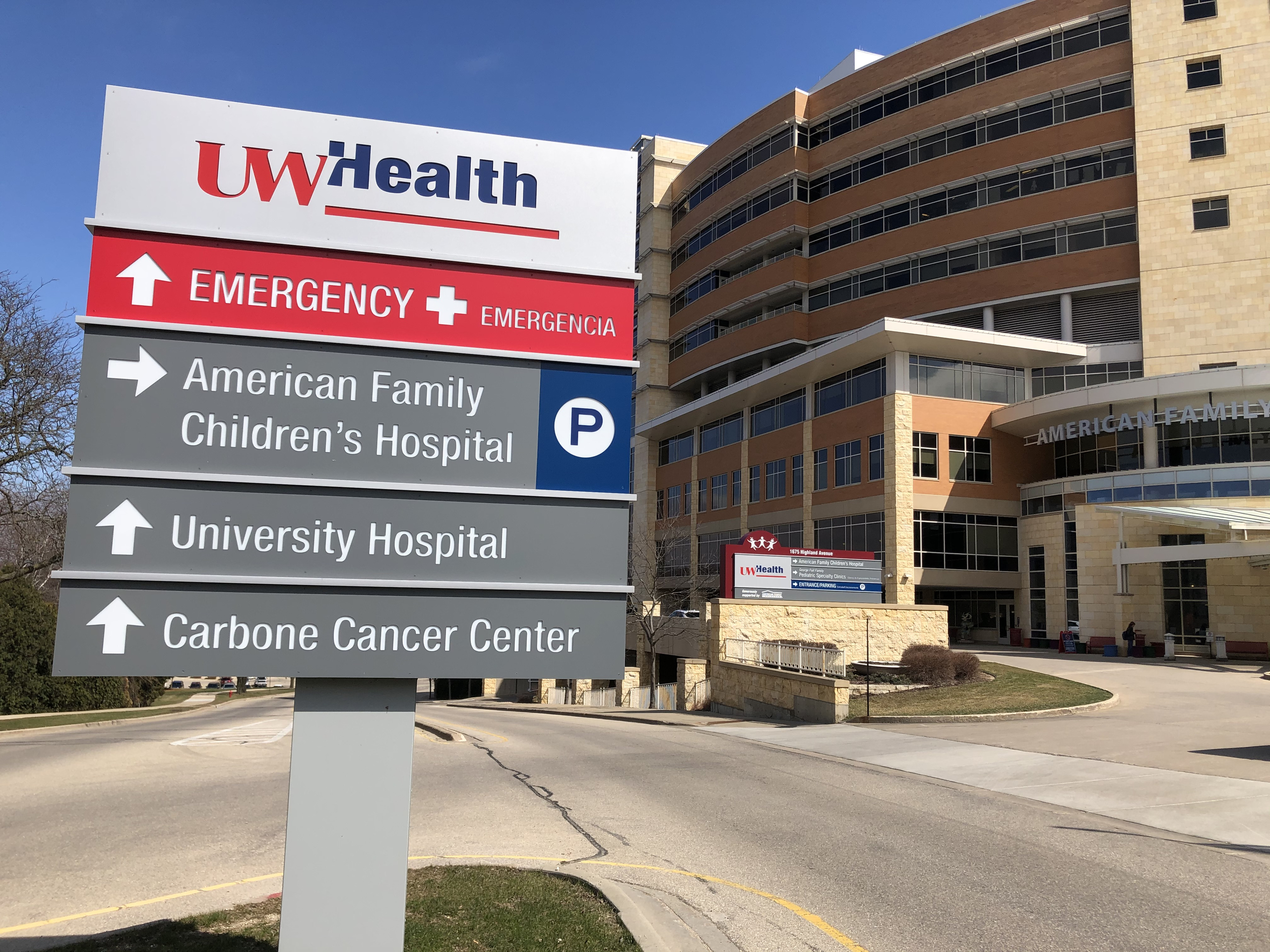A clinic for people living with sickle cell disease opened recently at a UW Health clinic in Madison as a hub to coordinate care for patients who often need several lines of treatment to control the condition.
Sickle cell anemia is an inherited disease that causes intense pain and life-threatening complications. That’s because red blood cells morph into the shape of a sickle and get trapped in blood vessels.
About 100,000 people in the United States have the disease, which disproportionately affects people of African and Hispanic descent. One in 12 Black Americans carry the sickle cell genes, explained Dr. Moniba Nazeef, assistant professor of medicine at the UW School of Medicine and Public Health, and a hematologist heading the clinic.
Stay informed on the latest news
Sign up for WPR’s email newsletter.
Although the clinic is new, Nazeef has plans to offer various clinical trials related to sickle cell disease, including new medications and other treatments.
Beyond that, Nazeef said she wants to build the clinic into a hub that serves as a champion for patients to collaborate with other hospitals, specialists and departments and improve patients’ experiences in the hospital setting.
She hopes listening to patients will help reduce some of the racial injustice that historically has plagued people who seek treatment with this disease.
Sickle cell anemia, the most common type of sickle cell disease, is passed on to children from parents who each have an abnormal sickle cell gene. The child needs two abnormal globin genes to have a chance of getting sickle cell disease.
The body’s tissues need oxygen to function properly, but in a person with sickle cell anemia, that normally efficient process is slowed by cells that become misshapen, Nazeef said.
This inefficiency can lead to major organ problems. Interruption of blood supply can lead to strokes. If there’s congestion in the blood vessels of the lungs, that can lead to problems with breathing. Bone tissue affected by sickle cell anemia can end up dying. If the spleen becomes damaged, people become more predisposed to infections, which the spleen typically helps protect against.
Sickle cell disease has a complicated treatment regimen because of the condition’s complexities. One of the main goals for health care providers is to control the pain and manage associated complications. Another goal is to manage the disease itself.
Three new medications and an older medication are used to treat the disease, along with blood transfusions.
Nazeef said bone marrow transplants are also an approved curative treatment. The process involves replacing a patient’s specific stem cells with those from a donor. In successful cases, the body no longer produces sickle cells.
But there are limitations to that treatment. It’s most effective in people 16 years and younger and those who are matched perfectly with a donor, in most cases a sibling.
“It’s not available to every patient and only about 20 percent or (fewer) patients actually end up getting a bone marrow transplant in the United States,” Nazeef said.
Gene therapy is a promising area of research, Nazeef said, though it’s not approved outside of clinical trials yet. This technology uses techniques to change the behavior of the gene so that it produces normal red blood cells.
It’s particularly attractive as a treatment option because it requires no donor.
“There are a lot of initiatives that we are currently in the process of (focusing) on in terms of sickle cell and also a lot of quality based interventions to improve patients experiences,” she said.
Wisconsin Public Radio, © Copyright 2025, Board of Regents of the University of Wisconsin System and Wisconsin Educational Communications Board.





